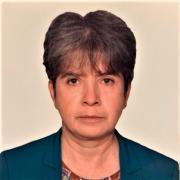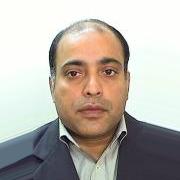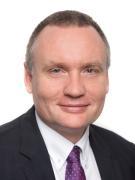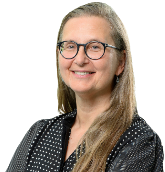Our Team
Pagination



- Global Facility on Mini Grids
- Electricity Access
Clemencia will be leading the ESMAP’s Global Facility on Mini Grids (GFMG), a key part of ESMAP’s electricity access program. She brings extensive operational experience in dealing with a wide range of issues in the electricity sector, from rural and peri-urban electrification, developing regional transmission networks, to supporting reforms of electricity utilities and leading country policy dialogue and energy programs in several countries.
Clemencia previously worked in the Middle East and North Africa, Latin American and the Caribbean, and Africa regions in operations, on analytical work, and sharing of knowledge in DEC and PPIAF. In addition to her work on the electricity sector, Clemencia worked several years on a broader infrastructure agenda, and on the best ways to tap on private sector participation in the various sectors. Clemencia holds a master’s degree in political economy and a Ph.D. in Economics from Boston University.


- Foundations for The Energy Transition
Deb leads ESMAP’s Power Systems Planning team. The team undertakes analytical work for the Energy and Extractives Global Practice including least cost planning analysis and technical/economic analysis at project level to support operations. He is a power system engineer and economist with significant experience on energy market design and analysis to address market operation, planning and policy issues.
Deb's work also encompasses a range of other economic issues around electricity supply reliability, design of electricity markets, nodal pricing of electricity, portfolio risk analysis, commercial assessment of carbon capture and storage, cost benefit analysis of smart metering and analysis of renewable energy policies. He is also currently an Adjunct Professor of Electrical Engineering (Power System) at the University of Queensland, and an Honorary Fellow of the Department of Electrical and Electronic Engineering of the University of Melbourne.
Previously, Deb was a Director with leading consulting firms Charles River Associates (CRA) and Deloitte since late 2000 before becoming an independent consultant in 2012. He has taught electricity modelling and quantitative methods at University of Canterbury as a Senior Lecturer/Associate Professor between 1997 and 2000. Deb has done a significant volume of work on impact of climate change on the energy sector since 1990 and has done extensive work on marginal cost of carbon reduction, change in generation mix and impact on alternative fuel prices, and economic assessment of low carbon projects.


- Electricity Access
Deea joins the ESMAP energy access workstream to focus on the adoption and expansion of mini-grids. She joined the World Bank in 2017 and brings over seven years of experience in energy access, covering both grid and off-grid, regional energy integration, energy sector reform, and climate finance. Deea’s work has encompassed several regional and country programs across West and Central Africa, East Africa, and the MENA region. Deea is passionate about promoting equitable energy access and is interested in how public and private sectors can work together to improve infrastructure for better service delivery and economic development.
She holds a master’s degree in international economics and development from Johns Hopkins University’s School of Advanced International Studies (SAIS). Deea is also a member of the Global Women’s Network for the Energy Transition (GWNET), where she serves as a mentor in the Women in Energy Empowerment Program, and she has been recognized as a Women Leader in Energy and Climate Fellow by the Atlantic Council.


- Foundations for The Energy Transition
- Energy Subsidy Reform Facility
Defne is the co-lead of the Energy Subsidy Reform Facility. Prior to joining ESMAP, Defne worked as a Senior Energy Specialist in the Bank’s Energy and Extractives Global Practice in the South Asia Region, focusing on energy sector reform, policy and regulation, energy efficiency, sustainable cooling, and agriculture-water energy nexus topics in India, Pakistan, and Afghanistan.
Defne previously worked in the East Asia and Pacific Region focusing on energy efficiency, renewable energy, rural electrification, regional power trade, and energy sector policy and reform engagements in Cambodia, China, Indonesia, Philippines, and Vietnam. Before joining the World Bank, Defne worked for the Energy Market Regulatory Authority of Turkey; in a private international energy major in Houston and an international policy think tank in Washington DC. Defne has an MA from Johns Hopkins University School of Advanced International Studies (SAIS), with a concentration in energy and international finance.


- Green Hydrogen Support Program
Dolf Gielen is the lead for the Green Hydrogen Program in ESMAP. Prior to joining the World Bank, Dolf worked for IEA, IRENA and UNIDO. He has 30 years of experience in energy and climate policy, with emphasis on innovation, technology and economics. Dolf has advised many senior public and private sector players in various settings. This includes CEM, G7, G20, MI, SE4ALL, UNFCCC, SE4ALL and WEF, amongst others. He was part of the management team that established IRENA as a new intergovernmental agency.
Dolf has a PhD from Delft University of Technology in the Netherlands in energy and materials systems modeling. He studied chemical engineering and environmental sciences. Dolf has written more than 150 peer reviewed scientific papers, books, and reports. At the center of his work is the support for better informed energy and climate decision making.
Learn more about Dolf: Researchgate | Google Scholar


Fanny is the ESMAP Practice Manager for Access and Data. Before joining ESMAP, she led the Bhutan and Nepal energy programs for 3 years, after a 4-year assignment leading the Bank’s Afghanistan Energy Program, both in the World Bank’s South Asia Region (SAR) Energy Group. Since joining the World Bank in 2002, Fanny has worked on energy projects in Sub-Saharan Africa, the Middle East, and South Asia. At the World Bank, she has led project teams providing financing solutions for generation, intra- and inter-country transmission, distribution, rural electrification, and renewable energy (large and small-scale). Before joining the World Bank, Fanny worked for the United Nations Environment Program’s (UNEP) Centre on Energy and Environment, Denmark, and the Royal Institute for International Affairs, England. She holds a PhD in Economics.


- Energy Climate Finance
Hema has joined ESMAP to support the Energy Climate Finance (ECF) Team in Trust Fund management, budgets, and financial reporting for ECF managed programs. Hema will collaborate with program secretariats, trustee, and other Bank units in fulfilling the fiduciary obligations and compliance related to ECF managed programs. Hema joined the Bank in 2009 as a consultant and has since worked across multiple VPUs like DFI, BPS, and Environment Global Practice before joining ECF team in 2020. Hema holds a master’s degree in computer applications and a bachelor’s degree in science from the University of Madras, India.


- Efficient and Clean Cooling Program
Jenny is a senior energy specialist, leading the cross-sectoral Efficient, Clean Cooling program which focuses on efficient and climate friendly solutions for space cooling and cold chains in the health and agriculture sectors.
Prior to joining ESMAP, Jenny worked in the Bank’s Energy and Extractives Global Practice in the Africa regions for over 10 years, where she managed various energy sector country dialogue and investment lending and analytical projects on energy access, energy efficiency, and renewables in countries such as Liberia, South Sudan, Uganda, South Africa, Zambia, Tanzania, Zimbabwe, and Malawi. Jenny has also worked extensively on regional integration, energy finance, utility performance improvement, and power sector reforms and led regional program such as the Lighting Africa Program, Africa Electrification Initiative, and the Africa Energy Efficiency program.
Jenny started her career at the World Bank in the Liberia Country Office where she supported the infrastructure portfolio of the Urban, Transport and Energy Global Practices. Jenny holds a Master of Science in Industrial Engineering and Management from the Royal Institute of Technology (KTH), Stockholm, Sweden.


- Foundations for The Energy Transition
Jimmy is an energy specialist with a wealth of experience in steering and managing expansive renewable energy programs. Currently, he holds the position of Program Lead at the Climate Investment Funds, where he oversees the Scaling-up Renewable Energy Program (SREP) and the Renewable Energy Integration (REI) program. His role encompasses the strategic design, management, and execution of investment plans across numerous countries, effectively leveraging billions in funding to propel renewable energy advancements. Jimmy's expertise extends to leading transformative projects aimed at modernizing energy sectors, particularly in Brazil, with a focus on smart grid implementation and enhancing energy efficiency. Additionally, Jimmy has been an integral part of the Middle East & North Africa (MNA) regional quality team, where he provided critical portfolio analysis and trained staff on World Bank operations.


- Renewable Energy
- Energy Storage Partnership (ESP)
- Electricity Access
Juliet is co-leading the Energy Storage Partnership Program. She has over 20 years operations and management experience at the World Bank and prior senior positions in the Government of Ghana working on energy sector policy, energy access, renewable energy, slum electrification, power sector reforms, utility regulation, access to modern cooking solutions, gender, as well as the design of results-based financing incentives for access to infrastructure services. Her educational background includes a Masters degree in Public Policy with a specialization in regulation and industry analysis from Harvard University, USA and a Masters degree in Energy and Environmental Economics from ENI Corporate University in Milan, Italy.


- Foundations for The Energy Transition
- Utilities for The Energy Transition
- Energy Markets, Connectivity, and Regional Trade
Kabir leads the Utilities for Energy Transition program focusing on enabling utility digitalization, data driven decision-making and adoption of innovative business models across the globe in World Bank client countries. Kabir is also part of the core team for the Markets, Connectivity, and Trade program and leads the World Bank’s regional integration and power trade engagement with the Eastern Africa Power Pool.
Prior to joining ESMAP, Kabir worked in the Bank’s Energy and Extractives Global Practice in the East and Southern Africa regions, where he managed various energy sector country dialogue and investment lending and analytical projects on utility strengthening, electricity access, cross-border power trade, and renewables.
Kabir holds a PhD in Economics from the University of Maryland and a MA in Economics from the University of Delhi.


- Monitoring & Evaluation, Portfolio and Knowledge Management
Kasun joins the ESMAP Portfolio Team as a Program Assistant. He has worked with the World Bank Group since 2020 gaining extensive experience in administration, operations, human resources, and project management. In addition to his current role, Kasun has developed specialized expertise in statistics, data, and gender-related initiatives.
Kasun’s career spans across various United Nations agencies, including UNFPA, FAO, UNESCO, and UN Women, where he contributed to mission-critical projects. His diverse experience also includes roles in government and the private sector. Academically, Kasun holds a Master of Business Administration (MBA) with a specialization in Project Management from Cardiff Metropolitan University. He also holds a Bachelor of Science in International Relations from the University of London, with academic direction provided by the London School of Economics and Political Science (LSE). Additionally, he earned a certificate in Physics and Mathematics from the University of Bristol, highlighting his multidisciplinary academic background.